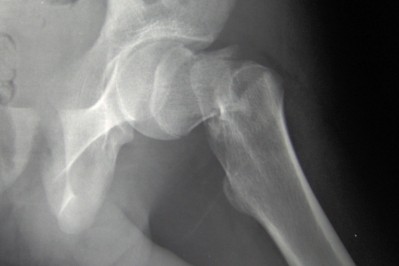Chondroitin sulfate may beat anti-inflammatory drugs for knee health support

Results presented at the Annual meeting of the American Academy of Rheumatology in San Francisco indicate that supplements of Bioiberica CS b-Bioactive chondroitin sulfate possess the same level of efficiency as celecoxib for the improvement of pain and mobility in knee osteoarthritis.
“The study confirmed that both products are efficient for the treatment of osteoarthritis symptoms, although only chondroitin sulfate has the additional advantage of exerting a joint protection effect and a better safety profile,” said Prof Jean Pierre Pelletier from the Rheumatology Research Institute of Montreal and lead author on the study.
The study was funded by Bioberica, and the Spanish company welcomed the results. “This study shows that chondroitin sulfate complies with the requirements that an osteoarthritis treatment must fulfill: on one hand, it improves pain and functional capacity, and, on the other hand, it delays the disease’s progression while having a good safety profile, something essential in a chronic disease such as osteoarthritis,” said Dr. Josep Vergés, medical and scientific director at Bioberica.
Study details
Prof Pelletier and his co-workers performed a two year, multi-center, randomized, double blind, controlled and comparative study called MOSAIC (24 MOnth study on Structural changes in knee osteoarthritis Assessed by mrI with Chondroitin sulphate). They recruited 194 people with knee osteoarthritis with inflammation (synovitis) and moderate pain and randomly assigned them to receive either 1,200 mg per day of chondroitin sulfate (CS b-Bioactive) or 200 mg per day of celecoxib (Pfizer).
Results from three Quantitative Magnetic Resonance scans revealed that the progression of knee osteoarthritis was slower in patients receiving the CS b-Bioactive supplements. “This data proves that chondroitin sulfate may delay the advance of osteoarthritis in the long term, and that it had a disease-modifying effect,” said Prof Pelletier.
Additional data revealed that both interventions were equally efficient across a range of other measures, including pain, function, stiffness, joint efflux and swelling, reaching a clinically relevant symptom improvement of around 50%.
“This trial demonstrated, for the first time, the superiority of chondroitin sulfate over celecoxib at reducing the long term progression of knee osteoarthritis structural changes,” wrote the researchers. “Moreover, both drugs were found equally effective at reducing the symptoms of osteoarthritis.
“These findings have important implications regarding the usefulness of chondroitin sulfate for long term management of knee osteoarthritis and its impact on disease outcome.”
Source: Arthritis Rheumatology. 2015; Vol. 67 (Supplement 10)
Annual meeting of the American Academy of Rheumatology
Abstract number 950. Accessed November 9, 2015.
“In a Two-Year Double-Blind Randomized Controlled Multicenter Study, Chondroitin Sulfate Was Significantly Superior to Celecoxib at Reducing Cartilage Loss with Similar Efficacy at Reducing Disease Symptoms in Knee Osteoarthritis Patients”
Authors: J-P. Pelletier, et al.
















